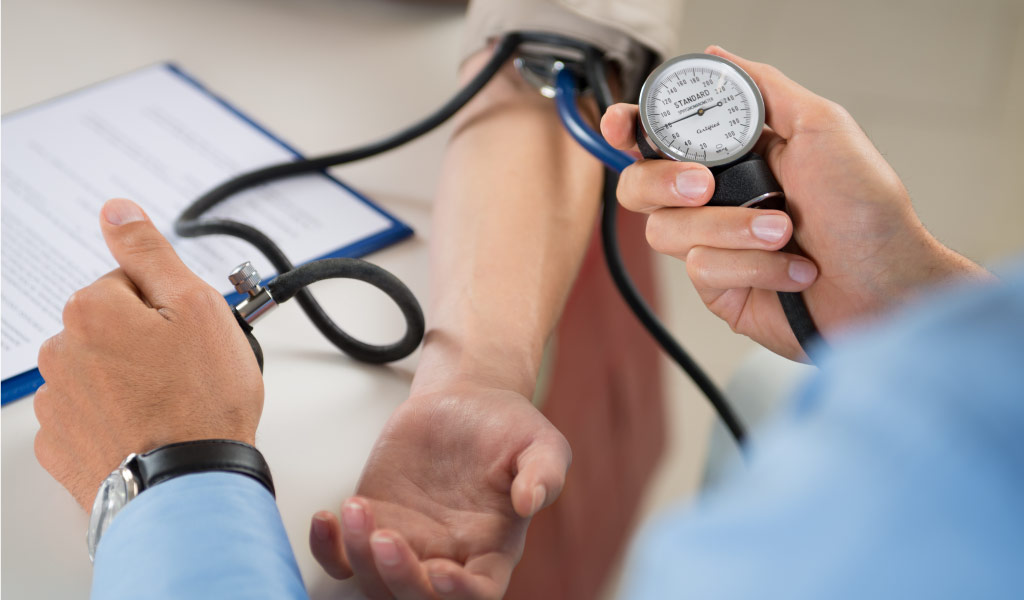Heart arrhythmia, or cardiac arrhythmia, is a condition where your heart beats at an abnormal rate. These problems with the heart rhythms are also called heart arrhythmias, and may lead to some major heart conditions including cardiac arrest, failure of the heart, or stroke. Let us learn all about the types, symptoms, causes, diagnosis and treatment of heart arrhythmia.
Heart arrhythmia symptoms
Commonly observed heart arrhythmia symptoms can be lethal and may include:
- Heart palpitations
- Shortness of breath
- Fatigue
- Lightheadedness or dizziness
- Chest pain
Heart arrhythmia symptoms may not be very prominent; the effects it has on your body may be termed as ‘silent’. Therefore, if you experience any of the above listed symptoms, make sure to book an appointment with your doctor to check for heart arrhythmia.
Types of heart arrhythmia
Generally, the types of heart arrhythmia are differentiated based on the number of beats per minute. The number of beats per minute for a normal resting heart rate ranges from 60 to 100. Any variation can be described as:
1. Tachycardia, or Fast Heartbeat
The condition where the resting heart rate of an individual is recorded as over 100 beats per minute. Based on the cadence of blood flow, the different types of this condition include:
- Atrial fibrillation (A-fib)
- Atrial flutter
- Supraventricular tachycardia
- Ventricular fibrillation
- Ventricular tachycardia
2. Bradycardia, or Slow Heartbeat
The condition where the resting heart rate of an individual is recorded below 60 beats per minute. Based on the underlying causes, bradycardia can be further divided into two types:
- Sick sinus syndrome
- Conduction block

Causes of heart arrhythmia
The heart consists of four chambers: two atria (or upper chambers) and two ventricles (or lower chambers). The sinus node (a natural pacemaker) present in the right atrium is responsible for sending electrical signals to initiate each heartbeat. This leads to a contraction of heart muscles as well as pumping of blood into the ventricles.
The processing of these signals in the heart takes place smoothly at the rate of 60-100 beats every minute. However, some factors can cause an abnormality in the same. Some of these factors may include:
- Diabetes
- Coronary artery disease
- High blood pressure
- Thyroid
- Excessive amounts of caffeine or alcohol
- Smoking
- Anxiety and stress
Did you know?
Heart arrhythmia can be hereditary. Therefore, if you have any family history of the condition, you should connect with your doctor and lower the risk of developing the same.
How is heart arrhythmia diagnosed?
When you visit your doctor to get checked for heart arrhythmia, he or she may conduct physical examinations and suggest some diagnostic tests. Some of the tests that can help determine the presence of heart arrhythmia as well as related diseases:
- Blood test (to check the electrolyte levels)
- Electrocardiogram (ECG or EKG)
- Echocardiogram
- Electrophysiology study (EPS)
- Ambulatory monitors
- Cardiac catheterization
- Heart MRI

Heart arrhythmia treatment
Based on the type and severity of your condition, the doctor may prescribe a treatment. Here are some of the most common ways of arrhythmia treatment:
1. Medications
Your doctor may prescribe antiarrhythmic drugs, medicines to control heart rate, anticoagulant or antiplatelet therapy drugs to prevent blood from clotting, and medicines for related conditions.
2. Healthy Lifestyle Maintenance
Management of hypertension and diabetes, healthy weight maintenance, and avoidance of unhealthy habits (smoking, drinking too much alcohol or caffeine) can take you a long way in maintaining a healthy heart.
3. Pacemakers
A pacemaker regulates normal heart rate. This is particularly very useful in case of heart arrhythmias.
Implantable cardioverter defibrillators (ICD) can help monitor the rhythm of your heart. More importantly, biventricular (B-V) pacemakers and defibrillators can help synchronize contractions in the left ventricle.
4. Therapies
Different therapies come with their own benefits and risk factors that you can discuss with your doctor. Some of the common therapies for heart arrhythmia treatment include cardioversion, catheter ablation, and pulmonary vein isolation.
Conclusion
Maintenance of a healthy lifestyle can result in a reduced risk of heart-related issues and conditions. The key is to consume a balanced diet consisting of heart healthy foods. Dietary aid in the form of TrueBasics Heart Omega-3 can help lower triglycerides and control cholesterol levels. The Antarctic krill oil used in this nutritional supplement is 100% traceable and pure, making it a promising ingredient that helps reduce cholesterol and triglyceride levels by up to 33%. the 4 heart-strengthening ingredients namely Omega-3 fatty acids, Phospholipids, Astaxanthin and choline work together to keep your heart healthy for longer.














